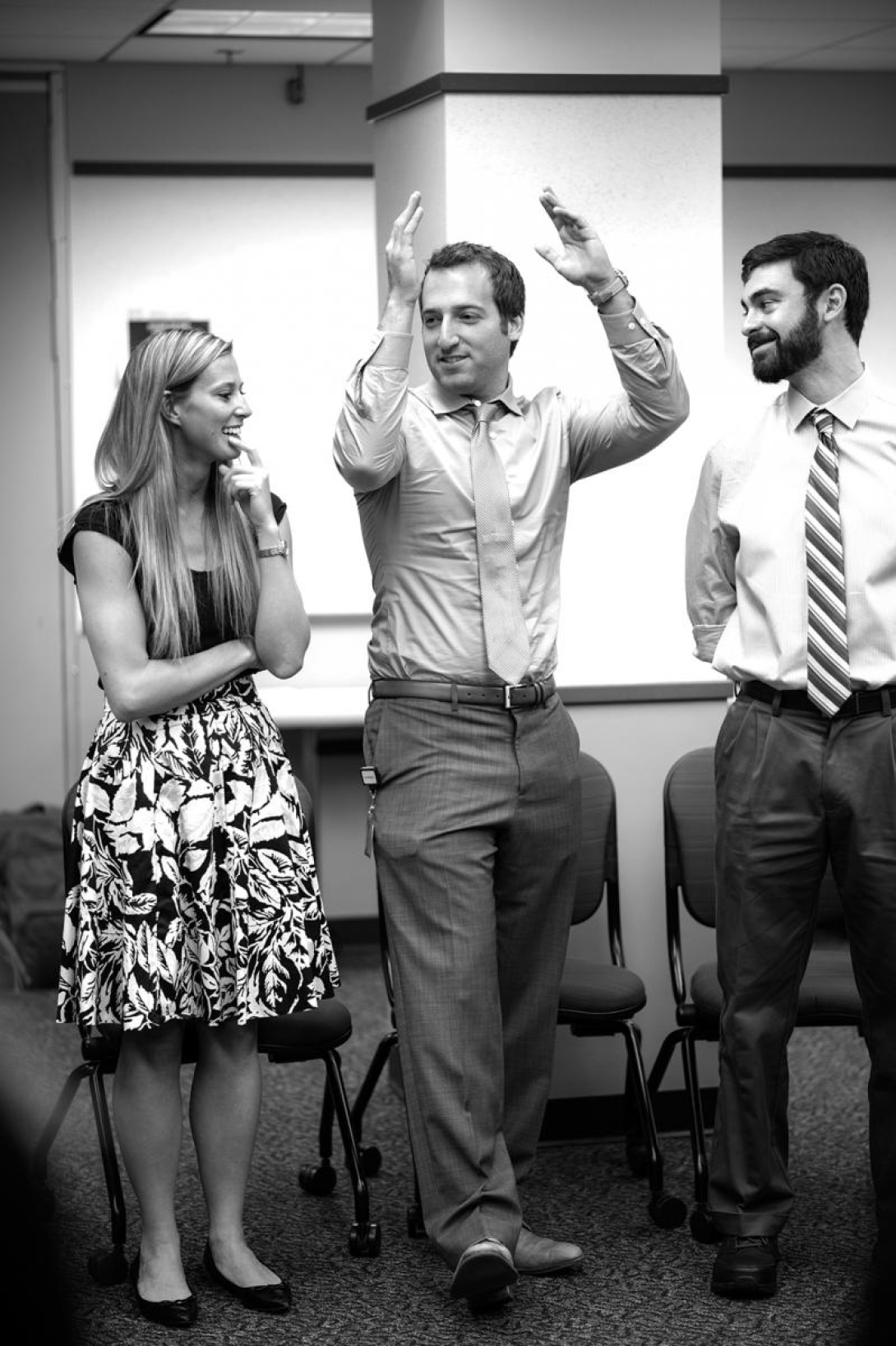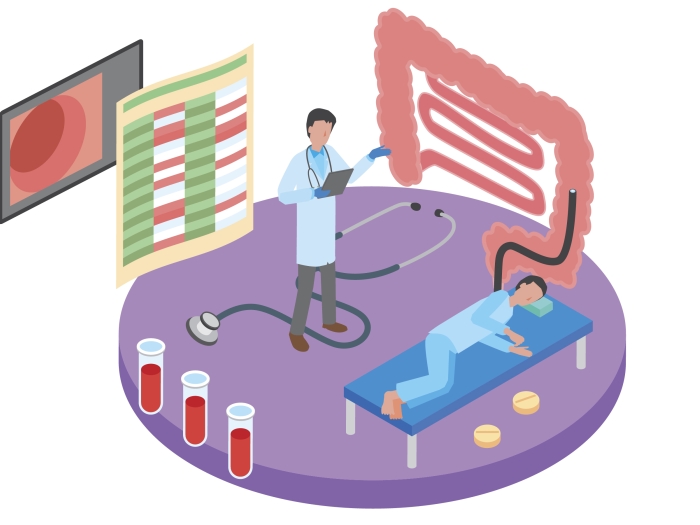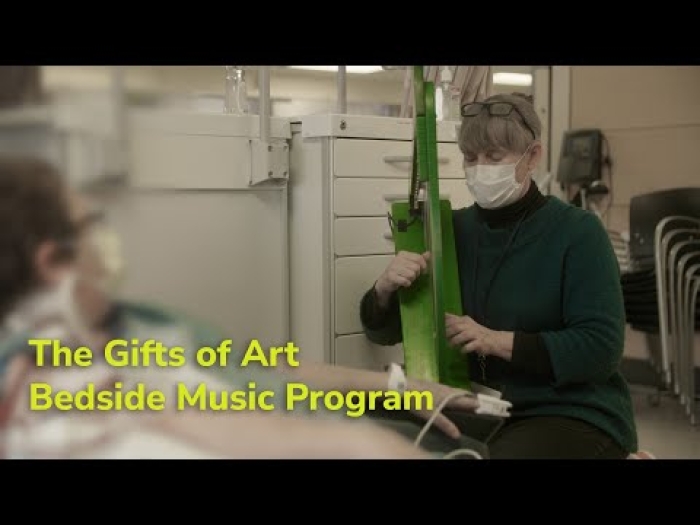Medical students at U-M are mastering the art of improv to strengthen and improve doctor-patient interactions.
Author |



In early May, you might have spotted an odd sight through a classroom window on campus: medical students playing. They face off in pairs, raise an arm or a leg in unison like courting cranes, dissolve into laughter. They draw weird cartoons on easels. They mime an airplane. More laughter.
All the tomfoolery has a serious purpose. Third-years embarking on the wards take a workshop in improvisational theatre, or "improv," its aim to help them master effective, empathetic communication.
Radiology professor David Fessell, M.D., spearheaded the improv workshop's first appearance last spring, led by the Alan Alda Center for Communicating Science. (This year, local instructors led it.) Fessell says the art form teaches doctors to be fully present with patients.
In improv, as with doctor-patient interactions,"you have to be listening, seeing, tuned to [the other person's] body language, to their emotions, to their words," Fessell says. "Improv teaches connection, empathy and trust."
Useful, too, is improv's cardinal principle, "Yes, And," which teaches performers to embrace and add to each other's statements to build a rich scene. For doctors, the principle is a reminder to respond to patients with phrases like "Tell me more" or "Help me understand."
"It builds a bridge rather than [saying] 'No,' or 'I get what you're saying but we can't do that,'" Fessell says. "It's receiving the gift of what they're saying and giving a gift back."
In one game, pairs of students take turns complaining about a pet peeve. Their partners listen carefully, then present that complaint to the group using positive terms. The point is to look past anger to detect what is truly important to that person. After Vicki Koski-Carell, class of 2018, complained about sexism in bike shops, her partner told the class that Vicki cared about equality for all. "I felt heard," Vicki said.







